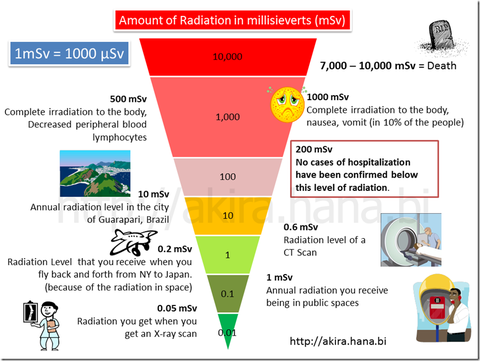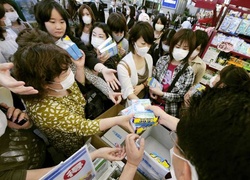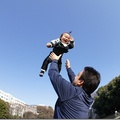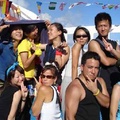Before I start, I would like to ask the international news media to stop using the situation in Japan—bloating the facts—and making it into entertainment to sell more papers and commercials. Many foreigners who live in Japan and can’t speak Japanese are guided solely on these kinds of news which are made thousands of kilometers out of here, and sadly, much of that information is erroneous, misleading, and/or out of proportions, and has brought panic to them.
I have been receiving many messages on my inbox asking me why I haven’t left the country, why I haven’t fled Tokyo to a safer place, why I haven’t gone far far away.
This is the reason why I have opted to talk on the mediums on my own behalf and to tweet what has been really happening in Japan day to day, so that people can listen to the voices of people who live here, without any filters of interests.
ALL THE REPORTERS ASK ME THE SAME QUESTIONS SO HERE ARE MY ANSWERS.
*Why won’t you evacuate? There’s so much radiation! Why haven’t you fled Japan?
To experience an earthquake, and then to see all the information about the tsunami, fires, and now nuclear plants in Fukushima going on fire, one could panic. Even the Chilean government, in conjunction with the Colombian government, have offered an evacuation flight to Chile. Hmmm, if it is a round trip one, maybe I will take it an visit my family for a week and come back.
These mere actions of offering a flight out of the country, which many of the embassies are offering, has caused the international community in Japan to panic. Analyzing all the information and to see it objectively, I think that there is no need for me to evacuate Yokohama, where I live, or Tokyo (where my office is), which are both more than 220km afar from the nuclear plants.
Below is a graph that I translated from the Agency for Natural Resources and Energy of Japan (source article). When you talk about the dangers of radiation from a nuclear plant, the most important thing is to know how dangerous is this radiation to human beings. Many news media seems to skip this information.
When you hear the information about the nuclear plants, and the radio toxicity, two terms are being used, and both point at the same thing but seem to confuse the viewer and reader.
I am talking about the Sieverts: It is the units used to measure radiation. Note that some use millisievert (mSv), and others use microsievert (μSv): 1mSv = 1000μSv.
This is the same as meters and kilometers, where 1km = 1000m, sieverts are the same 1mSv = 1000μSv. Some news agencies use the smaller one to make things look bigger, but it is easier to talk in milliseverts.
After seeing this and then checking the radiation level in Tokyo and in Yokohama (the highest was 0.05mSv in Tokyo on March 17th). And even if what we really want to evade, which would be a total meltdown of the nuclear plants, the worst that would happen is that a radius between 30km to 80km would be contaminated with this radiation. I am no specialist so if you want to know more in detail about radioactivity in Japan right now, I advise you to read the report and seminar of Mr. John Beddington who gave a speech in the embassy of England in Tokyo.
Here’s some interesting data:
The level of radiation in Tokyo today (March 17th) is of 0.04 mSv.
In Rome, Italy it is of 0.25 mSv!!! (source) meaning, tutto bene in Giapponne
*Everybody is using masks in Japan. Is it due to the radiation?
ABSOLUTELY NOT. In Japan we always use these type of masks for 3 main reasons.
1. Many people use it to avoid pollen, because they are allergic to it. It’s almost spring in Japan now.
2. Many wear it for respect to others. If a person has a cold or a similar sickness in Japan, you wear this mask so he/she won’t give this sickness to someone else. This shows a little about the Japanese spirit, where people care about how they affect other people even when they are sick.
3. There are other problems in Japan like the bird flu, which many are afraid of.
Also, if this was because of radiation, these masks won’t do you any good. What the government is asking to the people near the 30km radius of the nuclear plants is to put a wet towel on their mouth and nose if they need to go out of their house (among other things).
*This article was originally published on his blog ChilenoJapones on March 18, 2011. It was translated from his original Spanish post.
© 2011 Akira Uchimura








